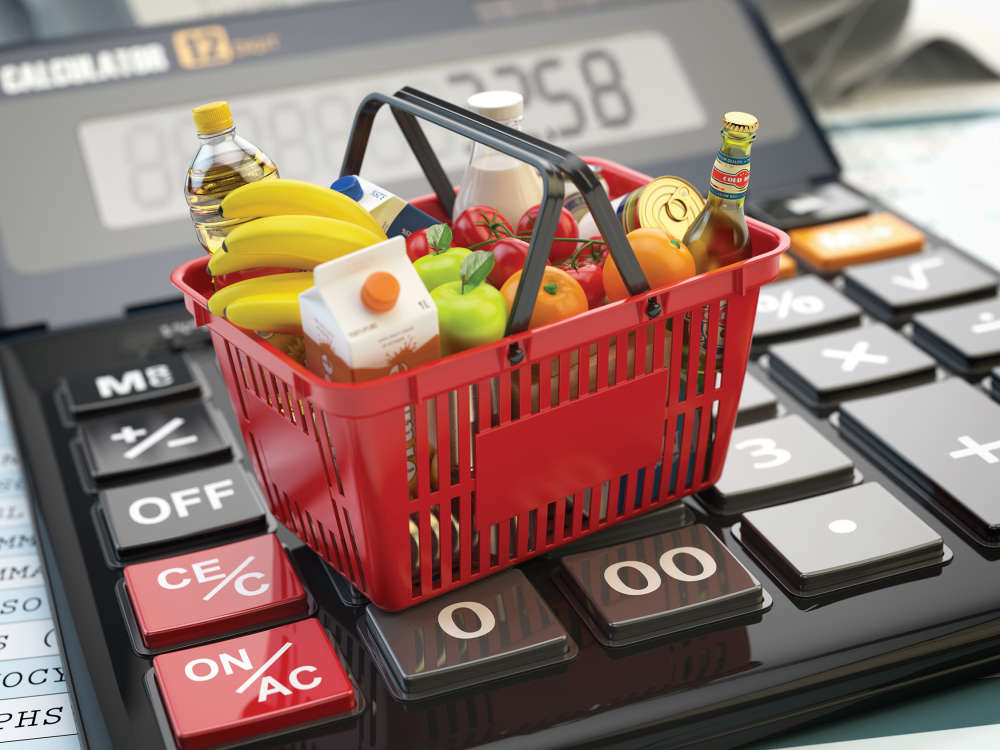
How does your household expenditure on groceries compare to the average UK household? Adele Trathan explores what we spend on food shopping and ways to help the weekly budgeting
The reality
There’s no sugar-coating the truth, our household expenses have gone up significantly in recent years. This has created more food banks, countless initiatives to help families make their money go further and an awful lot of anxiety.
The problem with ‘averages’ though, is that we all have different needs, different lifestyles and varying expectations of what is ‘normal’. It stands to reason that a couple with a newborn are going to purchase different types of products compared to a couple without – namely nappies and espresso!
Another factor that must be considered is the fluctuating cost of food. Prices of food and non-alcoholic beverages rose by 13.6% in the year to August 2023. This was down from 14.9% in July and a high of 19.2% in March 2023, which was the highest rate seen for over 45 years.
Nonetheless, even factoring in a slight price difference either way, it still can be helpful to see where your household fits in in terms of the UK average.

The stats
According to data from the Office of National Statistics, the average UK household now spends around £4,124 on groceries and £1,220 on food at restaurants and takeaways every year. As a result, British households spend 16% of their budgets on food and non-alcoholic drinks. Another 3% of budgets goes to alcohol.
The average weekly food cost – meaning food and non-alcoholic beverages - for the typical UK household is around £103, up around 18% from a year ago. Unsurprisingly, this varies from region to region. London and the South East spend around 10% more than the rest of the UK. Households in Northern Ireland spend the most: 13% more than average.
The lowest food bills are enjoyed by those in the North East (13% less than average) and Yorkshire (10% less than average).
The typical weekly grocery expenditure in the UK stands at £35 per individual. When you factor in an additional £10 spent on dining out or ordering a takeaway, the average weekly food cost for one person totals £45.
For an average adult male this increases to £54 – for a highly active young male it is £67 – and the average woman stands at £41 - £62 for a woman which includes food eaten in the home and outside of it.
An average weekly food expenditure for a family comprising two adults and one younger child typically amounts to approximately £132 (including £30 for dining out), increasing to a total of £167 for a family of four and £203 for a couple with three pre-pubescent children.

The option of cutting back
Regardless of whether you find yourself above or below these averages, if you’re feeling the pinch, you’re probably looking at way to cut back. Here are some simple tips which can help you spend less without sacrificing on quality or taste:
1. Plan your meals
Start by creating a weekly or monthly meal plan. Make a list of the ingredients you need and stick to it when you go shopping.
2. Shop smart
Look for sales, discounts, and vouchers when you shop for groceries and consider signing up for supermarket loyalty programmes.
3. Buy in bulk
Purchase non-perishable items like rice, pasta, canned goods, and frozen vegetables in bulk.
4. Seasonal and local produce
Buy fruits and vegetables that are in season and grown locally. They are often fresher and less expensive than imported or out-of-season produce.
5. Cook at home
Eating out or ordering takeaways can quickly drain your budget.
6. Limit convenience foods
Pre-packaged and convenience foods are convenient but expensive. Minimise their consumption and opt for homemade alternatives.
7. Reduce meat consumption
Meat is typically one of the more expensive components of a meal. Consider incorporating more plant-based proteins like beans, lentils, and tofu into your diet.
8. Avoid impulse buys
Stick to your shopping list and avoid impulse purchases.

 Five Of The Most Wondrous Ancient Ruins In The World
Five Of The Most Wondrous Ancient Ruins In The World
 Five Of The Most Inhospitable Places on the Planet
Five Of The Most Inhospitable Places on the Planet
 Five Animals You Wouldn’t Believe Are Kept as Pets
Five Animals You Wouldn’t Believe Are Kept as Pets
 Five Most Pet-Friendly Destinations in the UK
Five Most Pet-Friendly Destinations in the UK
 Five UK Valentine's Destinations Perfect For A Night Away
Five UK Valentine's Destinations Perfect For A Night Away
Comments
Add a comment